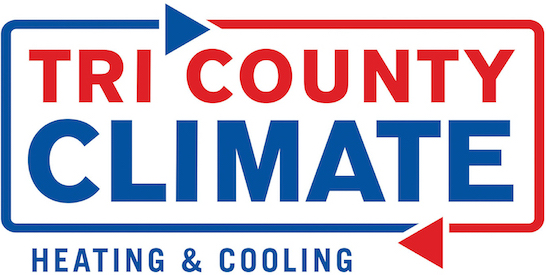
If you’re unsure whether your Bend house has unhealthy indoor air quality (IAQ), it likely does.
We are indoors a lot. In reality, we’re inside up to 90% of the time, according to the U.S. Environmental Protection Agency. And the air inside homes could be 2–5 times worse than outdoors, which may create long-term health issues.
Most Common Origins of Poor IAQ
We’ve put together a list of the most frequent causes of inferior IAQ, the problems they cause and how you can remedy these indoor air pollutants. If you’re troubled by the air inside your home, we recommend chatting with a expert like Tri County Climate Control LLC about which solutions are best for your house.
Volatile Organic Compounds
Volatile organic compounds, or VOCs, are chemicals released by common household products.
They’re found in paint and stains along with:
- Furniture
- Carpet
- Building materials
- Cleaning products
- Cosmetics
- Air fresheners
- Candles
When these fumes accumulate indoors, they may irritate your eyes, nose and throat. They may also create headaches and nausea. Regardless of whether your house is in a rural or industrial area, an EPA study found indoor levels of these chemicals can be 2–5 times greater than the air outdoors.
Always adhere to the manufacturer’s guidelines when applying paint or spraying cleaning products. Unlatching a window can help odors disappear faster.
Air purification systems can also help. This unit partners with your heating and cooling equipment to improve indoor air. When looking for a system, ensure it’s specifically made to eradicate VOCs.
Dust and Pet Dander
Dust and pet dander can irritate health problems like asthma and allergies, especially when it continually gets moved by your house’s comfort equipment. While you can vacuum more frequently and buy an improved air filter, an air filtration system could be a better solution.
This equipment hooks to your HVAC equipment to give mighty filtration. Some models have hospital-level filtration for removing particles and bioaerosols.
Persistent Odors
Newer homes are closely sealed to increase energy efficiency. While this is great for your utility costs, it’s not very good for your IAQ.
Stale odors can stay around for a greater amount of time as your home is pulling in reduced fresh air. As keeping your windows open all year-round isn’t doable, here are two methods you can make your indoor air smell cleaner.
An air purification system is placed in your ductwork to neutralize odors before they recirculate. Find one with a carbon filter and the capability to wipe out dangerous VOCs. These systems can also help keep your family healthy by wiping out most bacteria and normal allergy triggers like pollen and mold spores.
A ventilation system takes out musty indoor air and substitutes it with clean outdoor air. There are two models of systems (heat recovery and energy recovery), so check with our professionals for more details on which solution is right for your residence.
Unsteady Humidity
It’s essential your house’s humidity keeps even. Air that’s too moist can create mold, while dry air can lead to respiratory troubles.
Our professionals suggest 40–50% for top comfort. To keep yours even, think about getting a whole-home humidifier or whole-home dehumidifier with your heating and cooling system.
In place of having to pull a humidifier from room to room, this product delivers consistent humidity throughout your house.
Carbon Monoxide
Carbon monoxide is colorless gas you can’t smell. It’s caused by insufficient combustion in fuel-burning equipment, like gas heating systems, water heaters or fireplaces.
It poses an extreme health risk. In little levels, it can cause flu-like sickness like headaches and nausea. It can be fatal in heavy levels.
We recommend yearly furnace maintenance to ensure your system is operating like it should. This service allows our professionals to spot problems before they start, including malfunctions that can create carbon monoxide leaks.
The best way to keep your house free of carbon monoxide is to install detectors. These alarms should be on each floor near bedrooms and living areas.
Enhance Your House’s Air Quality with the Tri County Climate Control LLC Specialists
Aware that your home has inferior air quality but not sure how to enhance it? Or unsure which product is best for you? Give our approachable HVAC experts a call at 541-238-2797 or contact us online right away. With free estimates and professional service, we’ll help you locate the ideal solution for your home and budget.

